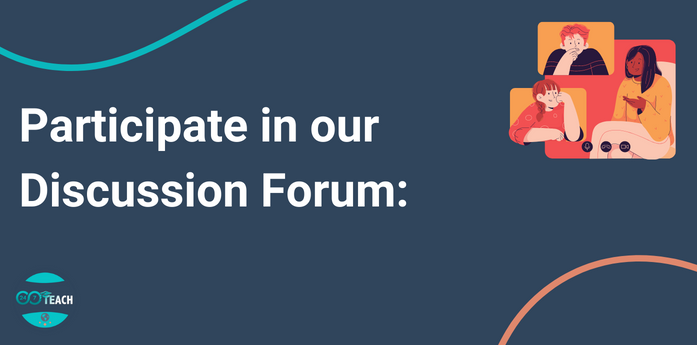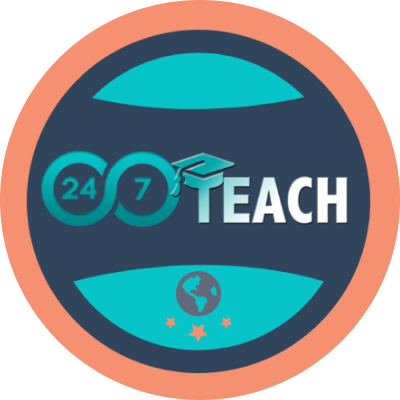Lesson 1: Understanding Effective Learning
Prefer to listen to this lesson? Click below:
Workshop Scenario:
Please think of yourself in the following scenario as you complete this workshop.
Imagine you are a learner struggling to keep up with coursework. You are overwhelmed by the amount of material you need to learn and find yourself forgetting key concepts and details. Determined to improve your study habits, you enroll in a learning and studying techniques workshop. In that workshop, you learn about several excellent study techniques.
Your final assignment is to choose a study technique to research and prepare to debate why you think that study technique is the best. Also, provide an example of how you used the study technique in your own life.
As you go through this workshop, we want you to take notes on the study techniques (spaced practice, interleaving, and retrieval practice) and note the pros and cons of each.
In this lesson, you will learn about the principles of effective learning, including asking questions, participating in discussions, taking notes, asking for feedback, and metacognition.
Lesson Objectives:
By the end of this lesson, learners will be able to…
Identify and understand the principles of effective learning.
Important Questions to Answer While Reading:
To be successful in this lesson, you must be able to answer these important questions.
Choose a study technique discussed in this lesson. What are the pros and cons of this particular study technique?
Can you use the study technique as an example?
Pre-Assessment:
Please complete a short effective learning assessment.
Lesson 1: Understanding Effective Learning
The Principles of Effective Learning
Effective learning involves acquiring knowledge and skills that can be retained and applied over time. Here are some key principles of effective learning:
Ask questions: It is important to note that asking questions can sometimes feel intimidating or uncomfortable, especially if you are in a large class or feel like you may be asking a "stupid" question. However, it is important to remember that asking questions is a valuable learning strategy, and your questions may help others with similar questions. Additionally, most instructors appreciate and encourage questions, showing that you are actively engaged with the material.
Here are some tips for asking better questions:
Be curious: Approach class with a curious mindset and be willing to ask questions about anything that you don't understand or find interesting.
Listen actively: Listen to what the teacher or other students are saying, and use their comments to guide your questions.
Be specific: Ask specific questions focused on a particular topic or concept. Vague questions are more difficult to answer and can lead to confusion.
Use open-ended questions: Ask open-ended questions that encourage discussion and a deeper understanding of the material.
Don't be afraid to ask for clarification: If you don't understand something, ask the teacher or another student to explain it in a different way.
2. Participate in Discussions: Class discussions can help you engage with the material, hear different perspectives, and develop your critical thinking skills. Here are some best practices for participating in discussions as a student:
Prepare in advance: Review the reading material or lecture notes before class to ensure you are prepared for the discussion. Think about the key points and questions you want to raise.
Listen actively: Listen carefully to what others say and avoid interrupting or talking over them. Show respect for other viewpoints and be open to different perspectives.
Build on others' comments: When you participate in the discussion, try to build on others' comments rather than repeating them. This can help generate new ideas and insights.
Share personal experiences: Sharing personal experiences can help make the discussion more relevant and engaging. It can also help you connect the material to real-world situations.
Use evidence: Use evidence to support your arguments and opinions. This can include citing research studies, referencing the reading material, or providing examples from your experience.
Be concise: Try to make your points clearly and concisely. Avoid going off on tangents or getting too caught up in minor details.
Participate regularly: Regular participation in class discussions can help you stay engaged with the material and deepen your understanding of the topic. Try to participate regularly and consistently throughout the semester. Remember that participating in class discussions is a skill that can be developed over time.
3. Take Notes: Notes can help you stay focused and engaged in the material. It can also help you organize and remember information better.
Here are some tips for taking better notes in class:
Be prepared: Bring all necessary materials to class, including pens, pencils, highlighters, notebooks, and textbooks. Arrive early to class and organize your materials, so you are ready to take notes.
Use a consistent format: Develop a consistent note-taking format that works for you. This may include headings, bullet points, abbreviations, or diagrams. Using a consistent format will make it easier to review and study your notes later.
Listen actively: Pay attention to what the instructor is saying and take notes on the most important points. Don't try to write down everything; this can be overwhelming and distract you from the lecture.
Use abbreviations: Using abbreviations and symbols can help you take notes more quickly and efficiently. For example, you could use "w/" for "with" or "&" for "and".
Highlight key information: Use a highlighter or underline important information, such as definitions, examples, and key concepts. This will make it easier to review your notes later and identify important information.
Review and revise: After class, review and revise your notes while the material is still fresh in your mind. Add any missing information, clarify any confusing points, and organize your notes for easier studying.
Summarize: Create a summary of the main points covered in the lecture. This will help you remember the key concepts and make it easier to review and study the material.
4. Take Breaks: Taking breaks can help you stay focused and engaged. You can use breaks to reflect on your learning, stretch your body, or take a mental break.
5. Ask for Feedback: We know that feedback is often a dreaded word. However, constructive feedback is how we learn. Please do not take constructive feedback personally. We know that this is easier said than done, but try to find the truth in any feedback. Constructive feedback helps us understand where we stand and what we need to improve.
6. Metacognition: Metacognition involves reflecting on one's learning process and understanding the material. This can help learners identify areas of weakness and develop effective learning strategies.
Metacognition can be broken down into three main components:
Planning: Before starting a learning task, individuals must set goals, develop strategies, and organize their thoughts.
Monitoring: During the learning task, individuals need to keep track of their progress, check their understanding, and identify areas where they may be struggling.
Evaluating: After completing the learning task, individuals need to assess their own performance, reflect on what they have learned, and identify areas for improvement.
Closing Assessment Questions:
Now that you have reached the end of this lesson, you should know the following:
The basic principles of effective learning techniques.
Advance your understanding:
Please answer the following questions in the comment section below and interact with learners from around the world.
What is your favorite effective learning technique so far? Please provide an example of how you could use the technique in your own life.
Please read and reply to other learners’ answers in the forum by stating if you agree or disagree with their answers and why. Your replies should offer new substantiated ideas or thoughtful questions.








